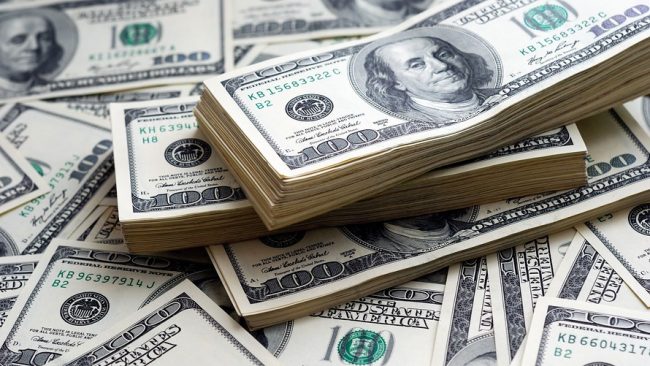With a gloomy forecast for 2023 and diminishing inflows, it has been difficult to get a sufficient supply of foreign dollars to execute dollarized transactions for products and services that are not easily accessible in Nigeria.
Again, a wave of analysts predicted that the market’s position may not improve in 2023 despite devaluation requests from domestic and international interest. Unfortunately, the naira’s depreciation will exacerbate household finances and increase pressure on the local economy’s inflation rate.
In a market brief, analysts said that compared to records set in 2019, foreign currency inflows into the Central Bank of Nigeria’s (CBN) organized exchange rate market for investors and exporters have remained more than 57% below pre-pandemic levels.
Declining inflows continue to be a barrier to recovery for the Nigerian naira, which is struggling to endure ongoing pressures in the foreign exchange market.
Large numbers of foreign investors have abandoned the local economy throughout the years. This occurred as a result of capital restriction procedures put in place by the apex bank to maintain the stability of the local currency, which have made moving the dollar out of Nigeria a tug-of-war.
In 2022, MSCI Index threatened to degrade Nigeria’s indices, citing the failure to remove the US dollar as the main cause. Review of foreign exchange transactions reveals that in 2022, exchange rates fell by around 11% as a result of an imbalance between domestic demand for the US dollar and other major currencies relative to overseas demand.
The central bank intervened in the window only occasionally, but the pressure persisted, causing the naira to weaken. This flaw causes Nigerian manufacturing companies to incur greater production expenses.
In exchange, manufacturers all over the world raised their prices, supporting a global supply chain that was already disrupted and raising Nigeria’s inflation rate in addition to the fang of insecurity’s impacts on the food supply.
Currency dealers claim that more policy changes might assist a strengthening of the exchange rate, but the weak foreign exchange reserve position continues to be a significant barrier to any expected positive shift.
According to the market brief sent to clients by Cordros Capital, foreign inflows into the Investors & Exporters Window jumped by 87.7% in December to USD1.85 billion from USD984.50 billion in November.
The investment business claims that the window’s December record was its highest level in a year, and it adds that the considerable growth was mostly fueled by local sources.
Analysts noticed that local sources increased from the previous month’s record by 110.3% to USD1.74 billion in December 2022. On the other hand, the amount contributed by foreign investors fell by 30.6% to USD109.80 million during the same time.
The amount of money coming in from exporters increased 88.0% year over year to $819.10 million, which experts think shows the sustained impact of the CBN’s refund.
“Notwithstanding, we note that the average monthly inflows of USD1.24 billion to the Investors and exporters window in 2022 was 2.0% and 57.4% lower than 2021 and pre-pandemic level (2019), respectively.
“The preceding reflects that FX illiquidity remains intact two years after the COVID-19 pandemic distorted the supposedly smooth functioning of the economy”, Cordros Capital stated.
Based on 2023 outlook documents reviewed by MarketForces Africa, investment analysts maintain that FX liquidity conditions will remain frail over the short-to-medium term in the absence of reforms to attract dollar inflows to the economy.
“The low FX liquidity conditions will also be driven by the lingering heightened global uncertainties and higher global interest rates, limiting foreign inflows to the economy”.
Analysts anchored their naira devaluation expectation on the fact that average monthly inflows to the Investors and exporter window in 2022 printed at $1.24 billion, translating to 2.0% and 57.4% lower than 2021 and pre-pandemic levels (2019), respectively.
The CBN’s contribution at the Investors, Exporters FX window has declined significantly below pre-pandemic levels by -29.20% over the three years, reflecting the apex bank’s limited capacity to defend the Naira, Meristem Securities also noted in its outlook.













